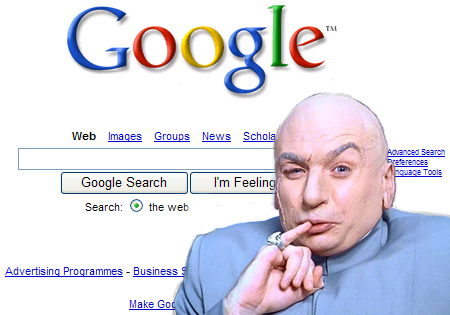The FDA outlines draft guidance on AI for medical devices
The agency also published draft guidance on the use of AI in drug development
Read more... The surest way for Microsoft to prevent Yahoo from linking up with Google on a search deal would be to buy Yahoo outright.
The surest way for Microsoft to prevent Yahoo from linking up with Google on a search deal would be to buy Yahoo outright.
But given that CEO Steve Ballmer has said he will only talk with a new Yahoo board of directors, he's dependent on Yahoo dissident shareholder Carl Icahn's efforts to oust the existing slate and replace it with one receptive to a Microsoft bid.
In case that effort fails, Microsoft has opened a second front, far from Silicon Valley, to try to kill or at least delay the deal that will have Yahoo outsourcing some of its search business to Google.
At hearings in Washington this week before a Senate committee examining how data collected by online advertisers is impacting privacy, Microsoft associate general counsel Mike Hintze raised the fear that a too-dominant Google would have no incentive to protect consumers' privacy.
Google owns more than 60% of the U.S. search market and would control an even larger share if it links up with Yahoo, while Microsoft's share is in the single digits.
Hintze warned that "a dominant player who is insulated from competitive pressure has little reason to heed consumer demand for stronger privacy protections and faces no significant competitive pressure
from other firms offering superior privacy practices."
He added that this could create "a race to the bottom" where search firms weaken their privacy protections "to catch up with the leader."
The logic of this argument is hard to buy into, since it suggests that other search companies besides Google would think they could improve their business by offering less privacy protections than the leader.
True, advertisers might pay them more if they collected more data, but it's hard to imagine consumers choosing an alternative to Google because it offered LESS privacy protections.
One problem for Microsoft in their argument is that when the U.S. Justice Department asked the major search providers to turn over search query data two years ago, Google was the only one who fought the order in court, and the only one that forced the government into accepting less data than others, including Microsoft, turned over.
Hintze's comments were an advance effort by Microsoft, which plans to testify at hearings next week dedicated to the proposed Google-Yahoo deal.
Acting the role of a small player asking the government for help isn’t a role that Microsoft has played much in its 30-year history, and it's clearly still learning.
My guess is that as anti-trust regulators consider scuttling the Google-Yahoo deal, they will be more swayed by arguments from consumer privacy groups than by those coming from Microsoft.
But that doesn't mean Microsoft won't keep up its efforts in Washington, even as Ballmer roots for Icahn to hand him Yahoo on a silver platter.
The agency also published draft guidance on the use of AI in drug development
Read more...The biggest focus areas for AI investing are healthcare and biotech
Read more...It will complete and submit forms, and integrate with state benefit systems
Read more...